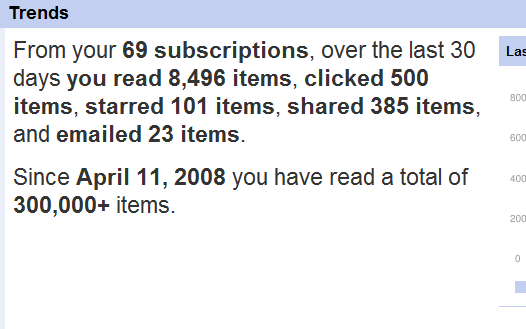
I read Jason Kottke via RSS. He posts videos or interesting links with short descriptions. I’ve read his site for over several years, and I only found about his site when he got hate for trying out micropatrons. Kottke does a good job posting obscure content that he filters (or “curates” as is the popular buzzword today).
In his Verge interview, he says:
…the web is now largely filters on top of filters on top of filters.
This is an amazing observation, and in retrospect after reading it, it was pretty obvious all along. Stuff gets tossed onto youtube, wordpress, forums, etc., and re-shared all over social networks.
The latest meme.jpg gets a LOL, quickly becomes overplayed, and we all move onto the next one. That’s great, except with Sturgeon’s Law applied, 90% of everything is crap on the internet.
I never used Summify, so I can’t say how effective their filtering is. Their fun video makes it look like it’s able to cut out the fat from your daily content. Of course, Summify is yet another filter on top of filters.
Filtering content to cut out irrelevant content is great, but I’d like to draw a distinction between two ways of browsing filtered news.
The first is where you’re browsing news for the sake of browsing. You want to get through all the news that’s fit to read, theoretically give yourself an information advantage for unforeseen situations, and kill some time. When you’re in the first mode, the worst thing that can happen is you run out of news to read. You hit RSS zero (which is not an easy task) and scramble for any content you can get.
The second is the opposite of the first one. In the first scenario, you have time to kill. The second one assumes you don’t have time to spare, but yet you want to get your news. In this second scenario, you only care about the big things. You don’t care for linkbait rants that passes for news today. You want news that is highly relevant and/or actionable.
Different news reading requires different filters. Whereas casual news browsing casts a wide net, highly summarized news demands a tight filter.
I’m not sure how these filters would be best implemented, perhaps some sort of trainable machine learning system? Facebook has top stories, but in my experience these supposedly relevant/interesting stories are as relevant as rolling the dice on my friend lists’ statuses.
It would be interesting if there was a go-to source of news that had a binary switch: 1.) show me any/all stories that I might care about and don’t stop or 2.) only show me !!! things. In the second situation, it has to be possible that there would be no news at all to report on some days.



 Via
Via